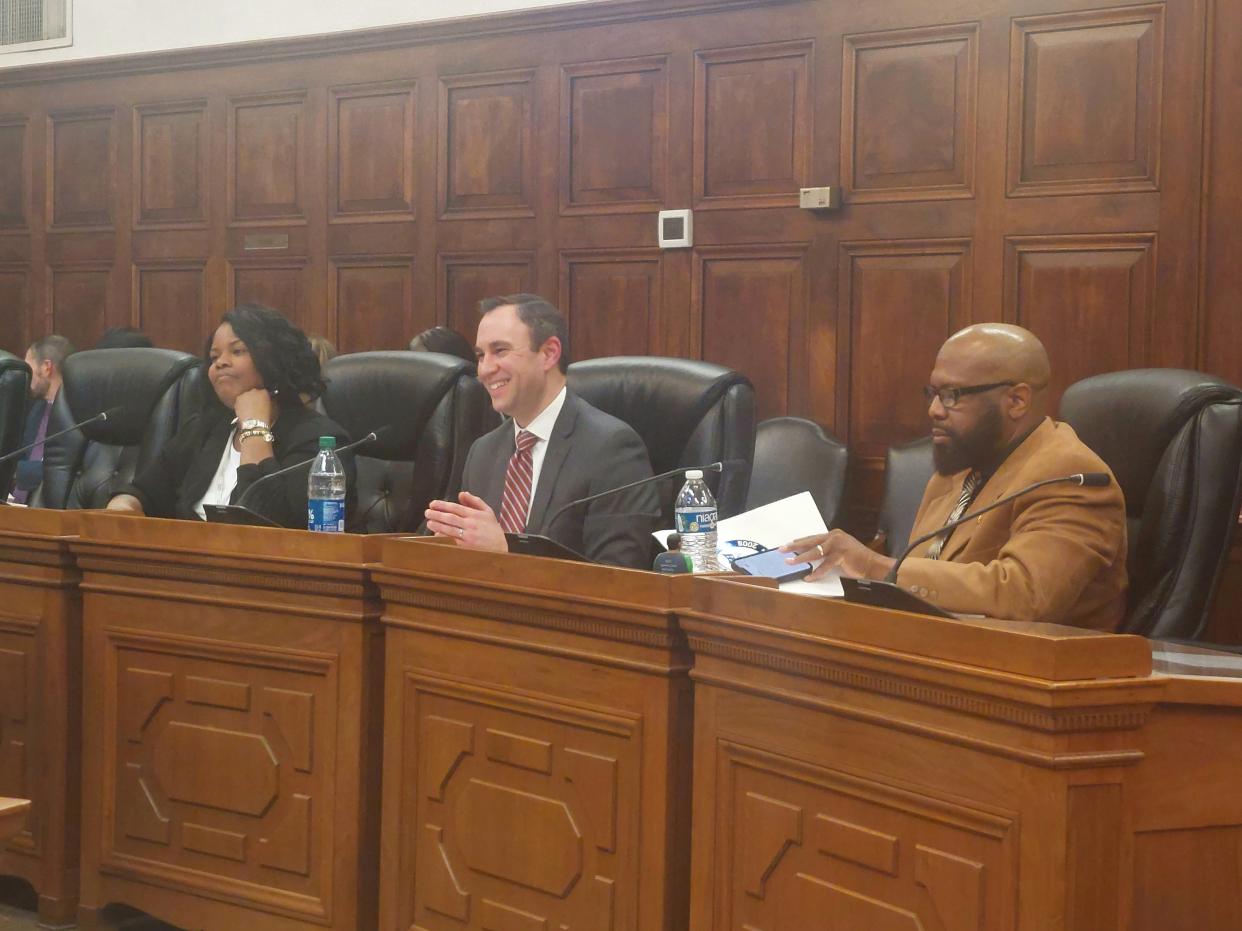Summa execs warn Akron City Council that health system would spiral without HATCo deal

Senior officers from Summa Health told Akron City Council members Monday that the hospital system must move forward with a deal to be acquired by HATCo to avoid drifting into financial abyss.
Council's Health and Social Services Committee heard from Ben Sutton, Summa's chief operating officer; Rob Gerberry, chief legal officer; and Tracy Carter, system director of government affairs and health policy. During an hourlong discussion, the Summa delegation elaborated on the proposed sale and fielded questions about what's being described as a first-of-its-kind partnership between a regional health system and venture capital-backed investors.
The council committee — chaired by Linda Omobien (at-large) and consisting of vice chair Jan Davis (Ward 4), Margo Sommerville (Ward 3), Tina Boyes (Ward 9) and Eric Garrett (at-large) — peppered Summa's representatives with questions. Other council members, including Johnnie Hannah (Ward 5) and Jeff Fusco (at-large), also had questions for Summa.
Fusco asked how the sale would affect those who rely on financial assistance from Summa, to which Sutton replied that, as part of the deal, HATCo has agreed to adopt Summa's charity care model.
Sutton said Summa takes its roles in Akron seriously — as a "safety net" health care provider, employer and a regional power driving economic growth — but emphasized that shedding its nonprofit status is key to sustaining those missions.
"Regardless of our tax status, we have to be profitable to remain viable and best serve our community for the next 100 years," he said. "We should not confuse tax status with commitment to a mission, and this relationship gives us the resources we need to continue to make the investments in local health care our mission demands and our community needs."
Here are some other questions the committee posed to Summa officials and their responses.
How long can Summa last without selling to HATCo?
"Today, our depreciation is about $70 million a year," Sutton said. Summa can only replace about $50 million of that each year.
He noted that nothing about the industry or the market indicates things will improve. It's hard to say how long Summa can last in its current form, he said, but the five-to-seven-year outlook is bad.
How will the foundation work?
A major requirement for the purchase of a nonprofit such as Summa is the creation of a community foundation with the sale's proceeds.
Sutton said this aspect is still being developed, but there is a framework and a concept in place, specifically focusing on social determinants of health, which can include anything from income and housing to education and access to jobs.
Gerberry said the Ohio Attorney General has a say in how the foundation operates as well.
What's the effect on employees in federal loan forgiveness programs?
The Federal Public Service Loan Forgiveness program stipulates that only those who work for a government or a nonprofit qualify for relief.
Summa employees enrolled in the program wouldn't lose what they've earned as a result of their time at Summa, but they wouldn't be able to gain additional credit.
In the past few weeks, Summa has provided employees with an opportunity to speak with experts on loan forgiveness programs to find what works best for them.
Carter said Summa would be exploring if the law could be amended.
What's the difference between nonprofit and for-profit for people without insurance?
Sutton said it's imperative that anyone looking to buy Summa adopt its charity care policy.
"There's no negotiating about it; it isn't in question. They have to continue to serve all people," he said. "They have agreed to adopt word-for-word the Summa charity care policy and to continue all payers and all members of our community."
Sutton said the agreement will continue in perpetuity as a condition of the sale.
What do HATCo/General Catalyst have to gain from buying Summa?
Sutton's reply to this question was twofold.
First, he said, if Summa can stay afloat as a result of the sale, it will generate "a modest return" that's appealing to investors playing a long game.
Second, General Catalyst, the venture capital firm backing HATCo, can sell this "transformative" model to other communities and will have the opportunity to invest in companies involved in — or resulting from — the model.
Contact reporter Derek Kreider at DKreider@Gannett.com or 330-541-9413
This article originally appeared on Akron Beacon Journal: Summa execs urge Akron City Council to see opportunities in HATCo deal

